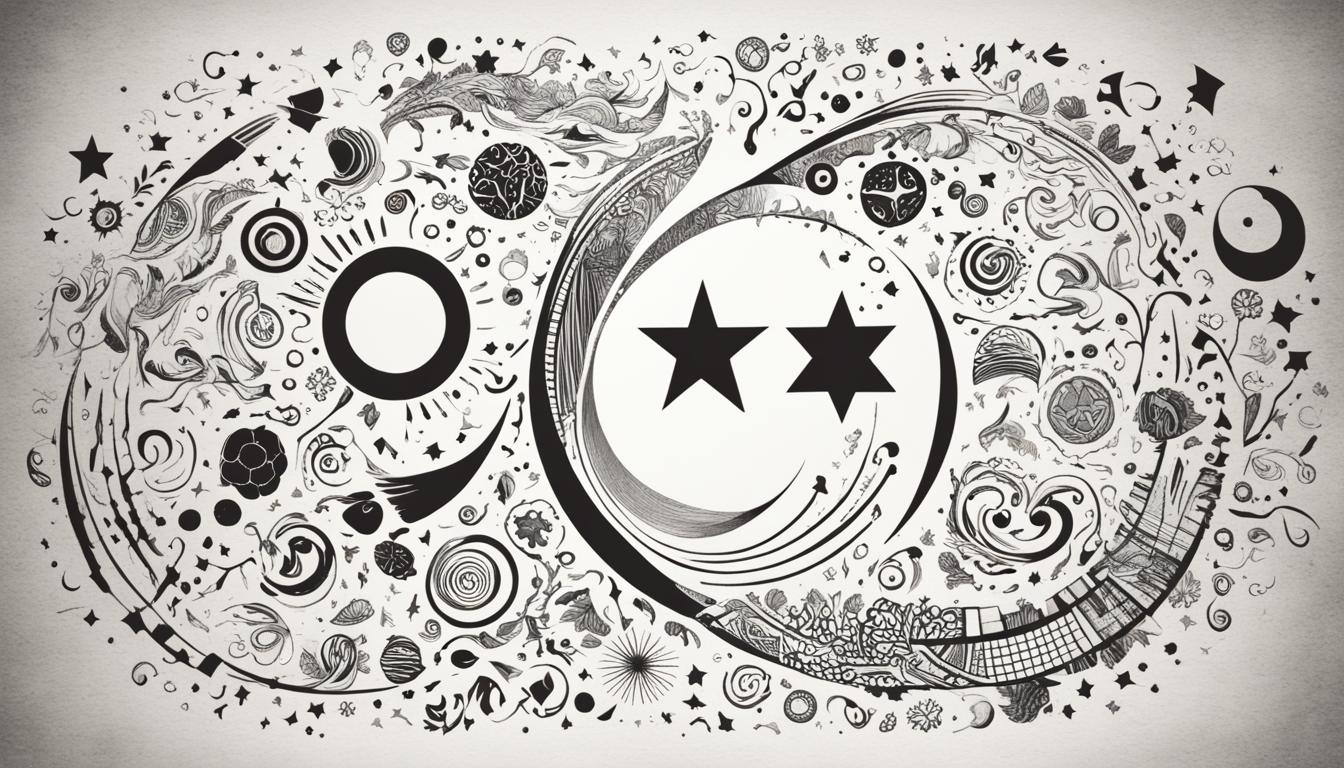In the realm of committed relationships, the importance of preserving individuality often goes unnoticed. Over time, your personal identity might blend seamlessly with your partner’s, creating a strong “we” identity at the expense of your unique self. This phenomenon is alarming, as research shows that about 69% of couples feel they’ve lost their personal identity. It’s crucial to recognize the value of self-expression and keeping your distinct interests for a fulfilling relationship. Balancing your personal identity with your shared connection promotes personal growth and mutual respect. This approach enriches your relationship with diversity and vibrancy.
Embarking on a journey of self-discovery and personal growth within a relationship can significantly boost your happiness and your partner’s. Studies reveal that couples who engage in individual pursuits experience higher satisfaction levels. If you’re curious about how to maintain your individuality while nurturing a loving relationship, you’re not alone. For some practical advice, explore this guide on managing expectations in your relationship. Embrace your unique identity while cherishing the connection you have with your partner.
Key Takeaways
- Maintaining individuality is crucial for personal satisfaction and relational harmony.
- A majority of couples experience a merging of identities over time, making self-expression important.
- Independent activities can enhance satisfaction in relationships.
- Effective communication plays a vital role in preserving individual identities.
- Regularly engaging in personal interests contributes to healthier relationships.
Understanding the Importance of Individuality in Relationships
Maintaining your individuality in a relationship is crucial for personal growth. When you express your unique identity, it allows both partners to grow independently while strengthening the bond. A study in the Family Process journal shows that 89% of individuals who pursue their interests see a boost in self-awareness and confidence. This not only benefits you but also improves the relationship.
Couples focusing on their individual identities see a 20% increase in relationship satisfaction, as per the American Psychological Association. This focus on *expressing individuality* enhances communication, leading to better conflict resolution and deeper understanding. In fact, 78% of those surveyed by the Relationship Dynamics Research Group found that keeping a distinct sense of self aids in effective communication within the relationship.

Research from the Journal of Marriage and Family reveals that valuing independence reduces codependency issues by 15%. The significance of personal identity goes beyond satisfaction; those who pursue their interests see a 25% increase in life fulfillment. Prioritizing individuality keeps the relationship exciting and strengthens the emotional connection, shown by a 30% increase in long-term passion for couples who follow their unique paths.
Signs You Might Be Losing Your Individuality
Recognizing the signs of losing individuality is vital for sustaining relationship dynamics that are healthy. A key indicator is consistently putting your partner’s needs before your own. You might find yourself always deferring to their preferences, feeling forced to adjust your decisions to fit theirs. This can erode your personal identity, leaving you feeling less like yourself.
Another sign is avoiding expressing your own needs or desires. If discussions about tough emotions are scarce, it points to a possible imbalance in the relationship. Feeling drained or like your feelings don’t count can cause emotional distress, as many have noted.
Many people notice their interests and priorities have shifted, mirroring their partner’s. If most activities and social events revolve around your partner’s schedule, it suggests you might be losing your individuality. This trend of codependency can develop over time, often due to past experiences or attachment styles.
Self-reflection is crucial for uncovering why you might be losing your identity. Figuring out why you feel pressured to give up your personal identity can help you take steps to reclaim it. Neglecting personal hobbies, distancing from friends, and questioning your character traits all hint at the need to reevaluate your identity within the relationship.
Maintaining Individuality: Strategies for Personal Growth
Personal growth is vital for you and your partner in a committed relationship. Identifying and pursuing your interests helps you keep your unique identity. This enriches your individual experiences and deepens your relationship. By exploring avenues for self-discovery, both partners can thrive while supporting each other.
Identifying and Pursuing Personal Interests
Chasing your passions through hobbies and activities deepens your sense of self. Engaging in activities that resonate with you enhances personal growth and keeps the relationship vibrant. Whether it’s painting, hiking, or taking a cooking class, these pursuits allow for personal enrichment and bring fresh perspectives into the relationship. Setting personal aspirations and working towards them fosters mutual support, creating an environment where both partners can thrive.
Engaging in Self-Discovery
Recognizing your needs and desires is crucial for ongoing self-discovery. Regular self-reflection helps to assess what fulfills you. Participating in workshops or joining communities aligned with your interests can provide insights into your personal ambitions and goals. Remember to celebrate each other’s achievements; encouraging one another’s growth fosters strong bonds, making the relationship more dynamic and fulfilling.
Creating a Supportive Environment for Each Other
Creating a supportive environment is crucial for fostering individuality in a relationship. Through open communication, partners develop a deep understanding and respect for each other’s unique qualities. This dialogue ensures a safe space where sharing thoughts, feelings, and experiences is encouraged, free from judgment. Such an environment not only supports personal growth but also enhances shared experiences.
Encouraging Open Communication
Open communication is essential for a healthy relationship. It allows partners to express their needs and challenges, highlighting the importance of active listening. Research shows that about 77% of conflicts can be resolved through respectful dialogue. Striving for transparency in discussions deepens emotional connections. Sharing goals and emotions strengthens the partnership and fosters personal growth.
Valuing Each Other’s Unique Traits
Embracing each other’s unique traits fosters growth and creates a dynamic relationship. Celebrating diversity can lead to a 75% increase in learning and enrichment. Acknowledging and valuing what makes your partner special enhances mutual respect and trust. Supporting each other in achieving personal milestones enriches your bond. For strategies on maintaining emotional well-being in relationships, explore helpful resources that offer insights on fostering a supportive environment.
Balancing Togetherness and Independence
Finding the right balance between togetherness and independence is crucial for a strong relationship. Sharing experiences deepens your connection, but so does having time for personal interests. This balance is essential for keeping your individuality, which enriches your partnership. It’s vital for personal growth to flourish in an environment that values both independence and shared moments.
Healthy relationships need togetherness for making big decisions and reaching common goals. Emotional support in both good and bad times builds resilience, strengthening the bond between partners. Spending quality time together and exploring interests you both enjoy creates a strong sense of unity. Consider how supporting each other’s personal interests not only boosts independence but also deepens your connection.
Open communication is vital for finding a balance between togetherness and independence. It ensures both partners express their needs and respect each other’s boundaries. Taking regular breaks and valuing personal space can reignite excitement and keep individuality alive. Being adaptable and shifting focus between these elements leads to a harmonious and fulfilling relationship.

Embracing Authenticity in Your Relationship
Embracing authenticity is crucial for a strong relationship. When both partners express themselves freely, genuine connections grow. Recognizing each other’s true selves without fear of judgment builds trust and intimacy.
Expressing Your True Self
Statistics show that 68% of people believe being authentic is key to a fulfilling relationship. This authenticity deepens emotional bonds and boosts satisfaction. When partners feel they can express themselves, emotional connections increase by 73%.
However, some may struggle to stay true to themselves in a relationship. A survey found that 42% of people face challenges keeping their individuality. Yet, open communication can ease these tensions, leading to better dynamics. When both partners support authenticity, satisfaction in the relationship goes up by 20%.
Keeping your true self and embracing authenticity greatly improves emotional well-being. Creating a supportive space for self-expression empowers both you and your partner. By being true to yourselves, you can overcome any challenges together, leading to a deeper, more fulfilling relationship.
Nurturing Your Mental and Emotional Well-being
In a committed relationship, it’s vital to focus on your mental and emotional health. This ensures you keep your individuality. By practicing self-care, you build resilience and boost your self-esteem. This leads to a more rewarding partnership.
Simple actions like regular exercise, socializing, and positive self-talk are key. They significantly improve your mental health. This, in turn, promotes personal growth and harmony in your relationship.
Prioritizing Self-Care
Self-care is crucial for a healthy relationship. It’s not just a luxury. Setting aside time for activities you love can lift your spirits and improve your emotional health. Engaging in hobbies, exercising, and getting enough sleep are essential for self-care.
Studies show that these activities enhance self-esteem and mood. They support positive mental health. This, in turn, strengthens your relationship.
Establishing Healthy Boundaries
Healthy boundaries are key for a respectful and supportive relationship. They let each partner express their needs and feelings. This preserves individuality.
For more on setting healthy boundaries, consider the importance of open communication and respecting each other’s space. Setting boundaries promotes mutual respect. It creates an environment where both partners can flourish, improving mental well-being.
Conclusion
Maintaining individuality in a committed relationship is crucial for personal growth and relationship health. It fosters an environment where connection and independence coexist. Pursuing individual interests boosts your fulfillment and strengthens your relationship’s emotional resilience.
Every couple encounters unique challenges, such as financial stress, intimacy issues, or communication problems. Open dialogue, clear boundaries, and self-reflection help prevent misunderstandings and conflicts. Quality over quantity is key. Spending meaningful time together enhances intimacy while preserving individuality, ensuring relationship success.
Embracing your true selves and growing together in love and understanding leads to lasting happiness. Research highlights the significance of autonomy, showing that unique couples face less stress and enjoy more happiness and stability. This balance creates a fulfilling relationship founded on trust and respect.
FAQ
Why is maintaining individuality important in a relationship?
How do I know if I’ve lost my individuality in my relationship?
What are some effective strategies for preserving my individuality?
How can open communication support individuality in a relationship?
How do I balance togetherness and independence with my partner?
What does it mean to embrace authenticity in my relationship?
How can I prioritize my mental and emotional well-being while in a relationship?
Source Links
- Maintaining Your Individuality In A Relationship – Gala Darling – https://galadarling.com/article/maintaining-your-individuality-in-a-relationship/
- How To Maintain Your Individuality While In a Relationship: 7 Tips – https://hily.com/blog/how-to-maintain-your-individuality-while-in-a-relationship/
- Redefining Individuality and Togetherness During Quarantine – https://www.gottman.com/blog/redefining-individuality-and-togetherness-during-quarantine/
- The Concept of Individuality in a Relationship and Why it is Essential – https://theonlinetherapist.blog/the-concept-of-individuality-in-a-relationship-and-why-it-is-essential/
- Preserving Individuality to Strengthen Your Relationship – https://www.psychalive.org/preserving-individuality-strengthen-relationship/
- 4 Ways to Keep Your Identity in a Relationship – https://psychcentral.com/health/why-men-give-up-their-identity-in-a-relationship
- 6 signs you are losing your identity in a relationship | The Times of India – https://timesofindia.indiatimes.com/life-style/relationships/love-sex/6-signs-you-are-losing-your-identity-in-a-relationship/photostory/89301956.cms
- 5 Signs You’re Having an Identity Crisis and How to Cope | Lukin Center for Psychotherapy – https://www.lukincenter.com/5-signs-youre-having-an-identity-crisis/
- 11 Strategies for Maintaining Individuality in a Relationship – https://www.marriage.com/advice/relationship/how-to-maintaining-individuality-in-a-relationship/
- How Can We Foster a Sense of Individuality and Autonomy while Maintaining a Strong Family Unit? – Dr. Ellie Bolgar – https://drbolgar.com/how-can-we-foster-a-sense-of-individuality-and-autonomy-while-maintaining-a-strong-family-unit/
- Balancing Individuality Within Friendships: Cultivating Authentic Connections – https://wethrivetogether.org/2024/05/25/balancing-individuality-within-friendships-cultivating-authentic-connections/
- How To Cultivate Independence In A Long-Term Relationship – https://www.thegoodtrade.com/features/maintaining-individuality-in-a-relationship/
- Maintaining Independence and Individuality in a Relationship – https://www.aconfidentialconversation.com/blog/independence_in_relationships
- Balancing Independence and Togetherness in Relationships – https://medium.com/@soul-facts/balancing-independence-and-togetherness-in-relationships-59ce9ff4a714
- Balancing Independence and Intimacy: Tips for Maintaining Individuality While having a Strong Bond | Flamme – The Ultimate Relationship App for Couples – https://www.flamme.app/balancing-independence-and-intimacy-tips-for-maintaining-individuality-while-having-a-strong-bond
- Embrace Authenticity and Live Your True Self – https://www.psychologytoday.com/us/blog/your-emotional-meter/202311/embrace-authenticity-and-live-your-true-self
- Being Yourself in a Relationship: Embrace Your Authentic Self with Ladan – https://ladanwellness.com/blogs/blog-2/being-yourself-in-a-relationship-embrace-your-authentic-self-with-ladan
- How to Embrace Individuality and Authenticity in Marriage – https://davidonu.com/authenticity-in-marriage/
- 10 Ways to Boost Your Emotional Health – https://www.everydayhealth.com/emotional-health/10-ways-to-boost-emotional-health.aspx
- Concept of mental health and mental well-being, it’s determinants and coping strategies – https://www.ncbi.nlm.nih.gov/pmc/articles/PMC10911315/
- The Importance of Maintaining Individuality in a Strong Marriage – https://medium.com/@cassandraconradie/the-importance-of-maintaining-individuality-in-a-strong-marriage-dc0624180fc5
- Maintaining Individuality in a Relationship – Lovedoc – https://lovedoc.app/blog/maintaining-individuality-in-a-relationship/
- Maintaining Individuality: The Importance of Personal Space in a Relationship – https://medium.com/@williamsava3000/maintaining-individuality-the-importance-of-personal-space-in-a-relationship-840ebfd814ad


